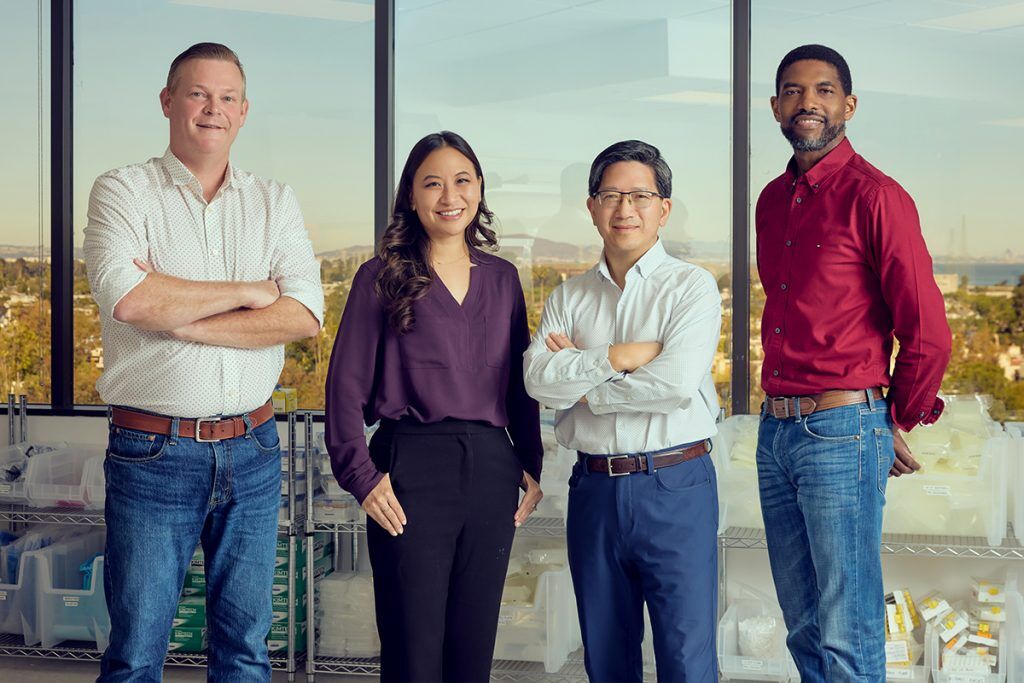Former Genentech, GRAIL execs form new diagnostics company powered by tissue-level biology, with longevity in its sights.
Diagnostics startup Curve Biosciences today announced it has raised $40 million to advance the development and commercialization of its “whole-body intelligence” platform, a technology designed to transform how chronic diseases are detected and monitored. Led by former execs from biotech and diagnostics companies including Genentech and GRAIL, the San Mateo-based company has built what it describes as the first molecular blueprint of the human body.
Dubbed the Whole-Body Atlas, Curve’s platform is based on more than 400,000 manually curated tissue samples characterized by organ type and disease state. Based on this foundation, the company has trained AI models to interpret biological signals in the blood and detect chronic disease states earlier and more accurately than existing diagnostic methods.
“Chronic diseases are on the rise, and healthcare costs are skyrocketing as a result,” said Curve CEO Dr Ritish Patnaik. “We need to improve patient monitoring to realize the positive impacts of breakthroughs like GLP-1s.”
Curve’s approach centers on returning to what it calls “biological truth.” Rather than relying on AI models trained solely on blood data, Curve’s models are grounded in verified tissue-level biology. By linking molecular patterns from tissue samples to the fragments of DNA that circulate in the blood as cells die, the company’s technology can identify the organ of origin for these fragments and assess its health status. The resulting blood tests are intended to enable proactive, data-driven health management by detecting organ-level disease activity long before symptoms or imaging results appear.
Curve presented clinical data at Digestive Disease Week 2025 demonstrating that its AI models, pre-trained on its Whole-Body Atlas and fine-tuned using blood samples, can accurately identify molecular signatures associated with progressive chronic diseases.
“These findings show that anchoring artificial intelligence in real human tissue data produces Whole-Body Intelligence models that are both biologically grounded and clinically translatable,” Patnaik told us.
The goal is to move chronic disease management from reactive to proactive care. For physicians, the tests could provide an early warning system for disease progression and a more precise tool for monitoring treatment response. For patients, the company envisions a system that helps maintain function and vitality by identifying subtle biological changes before disease manifests – a key tenet of longevity medicine.
“Most efforts to extend lifespan focus on single pathways, but the truth is that aging is a whole-body phenomenon,” Patnaik told us. “Our Whole-Body Intelligence platform is designed to capture how thousands of molecular signals interact and evolve over time, giving us a continuous, multidimensional picture of health.”
By mapping those molecular patterns, Curve says it can detect the earliest inflection points of decline and intervene long before disease manifests.
“Longevity isn’t just about living longer, it’s about preserving function, vitality, and resilience through precise, data-driven insight,” Patnaik told us. “The ability to measure and interpret the biology of aging in real time will redefine how we think about prevention and performance, shifting medicine from reactive care to proactive optimization. Our vision is a world where staying younger, longer is guided by molecular intelligence.”

In addition to Patnaik, who previously worked in business development at Genentech, Curve’s leadership team includes Dr Nathan Hunkapiller, who formerly led research and development at Natera and GRAIL, Dr Alice Chen, who also served in leadership roles at GRAIL, Natera, Progyny and Sienna Biopharmaceuticals, and Dr Chuba Oyolu, who was a founding scientist and site director at genetic testing company Counsyl. The company’s scientific founder is Stanford University engineering professor Shan Wang, an expert in molecular diagnostics and bioengineering.
The funding round was led by Luma Group, with participation from First Spark Ventures, Techas Capital, Micah Spear, Civilization Ventures, LifeX Ventures, Incite Labs, Mintaka Ventures, NZVC and other investors.
“We believe Curve’s Whole-Body Intelligence platform represents the next frontier in clinical testing, with the potential to fundamentally reshape how we monitor and manage chronic disease,” said Luma co-founder Dr Themasap Khan. “By anchoring in human tissue data, Curve is building a clinically actionable platform with clear reimbursement potential and massive market applicability.”
Curve says it plans to release additional information about its platform and its chronic disease pipeline in the coming months as it continues to pursue clinical validation and commercialization.
“The ultimate goal is to make biology-anchored intelligence a standard, reliable part of chronic disease care,” said Patnaik.

